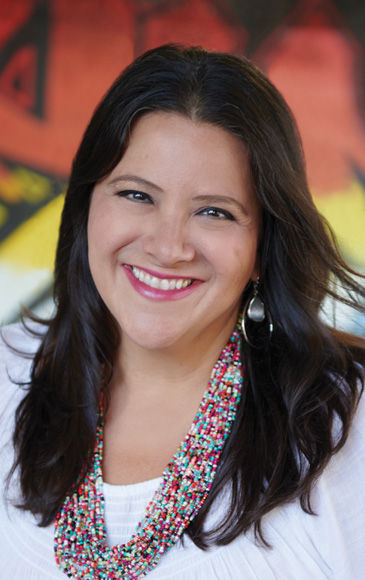The Breakdown
- reallyadmin
- Aug 23, 2022
- 3 min read
We’ve all had a breakdown at some point. And then the inevitable fallout after. Sandra Maria Van Opstal honestly points us to hope.
Elisa

The Breakdown
By Sandra Maria Van Opstal
When I was a young girl my parents owned an orange VW Beetle. It was a super-cute seventies car, but it constantly broke down, and that was super-infuriating. My parents chose to raise us in an up-and-coming affluent suburb where everyone had a couple of new cars. We, on the other hand, had a Bug. A broken Bug.
It embarrassed us when it made noise in front of the school or got stuck in the middle of a busy intersection. It was also dangerous—one winter we broke down in below freezing temperatures and I was young and unprepared to walk the few miles home with my parents.
Breakdowns are embarrassing, and the ones that bring the most shame to my Enneagram Eight* sensibilities are my own. Who in the world wants to emotionally crash in front of anyone? Especially when it seems that all the adults in our lives seem to have it together? When our fellow “gut space” folks are strong and self-contained? Why does everyone have to come off so cool? Isn’t that the lie, though? It says that even in our brokenness we need to be polished and sanitized before we can interact with others.
Breakdowns are inevitable when we’re running at the speed and intensity of “gut space.” Our stressed selves will eventually break. We will come to the point where our striving and our pushing through will fail us. When it happens and we get stuck in the middle of an intersection, what will we do to get out of it? We may want to get out of the car and scream, curse, and stomp around, but that will not solve it. How do we recover?
We are to wait. We are to hope. We are to anticipate God. Isaiah spends time reminding us of God’s personhood and promises. He asks us, “Do you not know? Have you not heard?” He then goes on to describe all the things that are true about God:
The Lord is the everlasting God,
the Creator of the ends of the earth.
He will not grow tired or weary,
and his understanding no one can fathom.
He gives strength to the weary
and increases the power of the weak.
Even youths grow tired and weary,
and young men stumble and fall;
but those who hope in the Lord
will renew their strength.
They will soar on wings like eagles;
they will run and not grow weary,
they will walk and not be faint. (Isaiah 40:28-31)
In this description we find the power and presence of a Creator who sustains creation and restores the things that are broken. In this description we are reminded that no one can teach God about compassion and justice. No one can add to God’s love or healing. No one can restore and renew in the way the everlasting God can. The invitation given to us when we break down is to fall down in the way of a Pentecostal revival . . . to just lay ourselves down in the presence of the Spirit.
When we wait in hopeful anticipation, we acknowledge that we cannot strive our way back to healing. We can’t push our way to restoration. We can offer ourselves to the powerful presence of God and allow restoration to begin.
Adapted from Forty Days on Being an Eight by Sandra Maria Van Opstal. Copyright (c) 2021 by Sandra Maria Van Opstal. Published by InterVarsity Press, Downers Grove, IL. www.ivpress.com
* Enneagram Eight is the Challenger. Eights are self-confident, strong and assertive. https://www.enneagraminstitute.com/type-8

Sandra Maria Van Opstal is a second-generation Latina preacher and activist reimagining the intersection of faith and justice. She is the executive director of Chasing Justice. She is a contributor to the New York Times bestselling book A Rhythm of Prayer and she's also the author of The Next Worship, The Next Worship Bible Study, and Forty Days on Being an Eight.






Comments